I read a lot. I don’t enjoy it. What I mean is, I don’t enjoy the process of reading — that sitting still, that slow plodding along, that uncertainty of wondering if I’m wasting my time. However, when I hit a phrase that makes me jump up, that grabs my heart and engages my mind in a new way, suddenly reading is much better than love, chocolate and gardening.
I want to share with you some quotations from a few books that have meant a lot to me as a gardener and even a philosopher — because surely some of the most profound thoughts in life have roots in the landscape. (Oh no, did he just make a pun? How can I keep reading?)
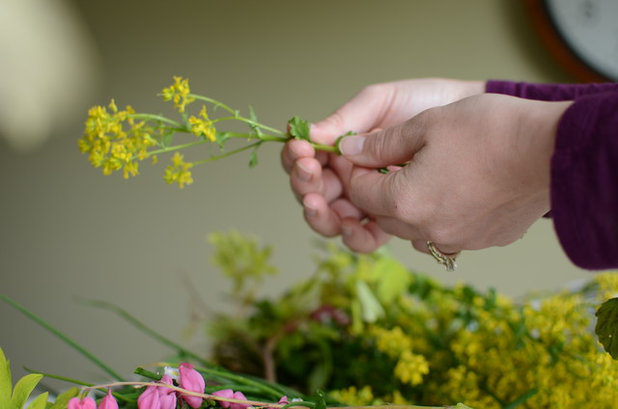
Amy Renea
“There’s something very important to me about having a kind of relationship, with plants and animals, that can be transacted wholly without language. The warmth of one’s body is a form of communication. The stroke of one’s hand is a means of communication. In the garden those forms are heightened. I have a tendency when I’m walking in the garden to brush the flowers as I go by, anticipating the fragrant eloquence of their response. I get a sense of reciprocity that is very comforting, consoling.” — Stanley Kunitz,
The Wild Braid: A Poet Reflects on a Century in the GardenI bet you’ve read how briefly touching a plant can stimulate its growth — surely you indoor seed starters do this. And I bet you’ve read how babies’ mental and psychological growth is dependent on touch, too. How amazing that how we reach out to the world has so much resonance and is directly responsible for health. But as a gardener, you already knew that, right?
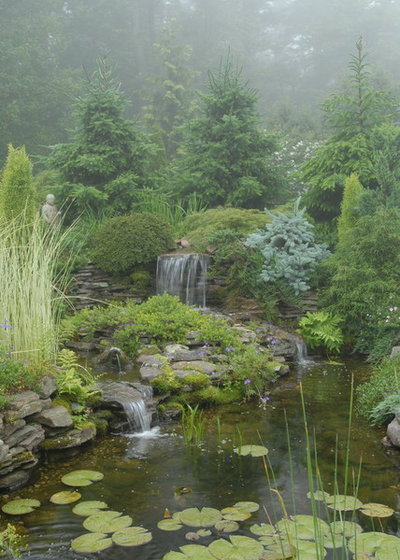
James R. Salomon Photography
“Gardening, as compared to lawn care, tutors us in nature’s ways, fostering an ethic of give-and-take with respect to the land. Gardens instruct us in the particularities of place … For if lawn mowing feels like copying the same sentence over and over, gardening is like writing out new ones, an infinitely variable process of invention and discovery. Gardens also teach the necessary if un-American lesson that nature and culture can be compromised, that there might be some middle ground between the lawn and the forest … The garden suggests there might be a place where we can meet nature halfway.” — Michael Pollan,
Second NatureEvery bloom, every butterfly, every bird, every raindrop is a new sentence in the garden — one that promises as much hope and daring as the words we speak to one another. That’s how I read Pollan here. Somewhere between that imagined gulf of nature and our inner selves is a middle ground that connects us and helps us remember who we are — that’s the garden.
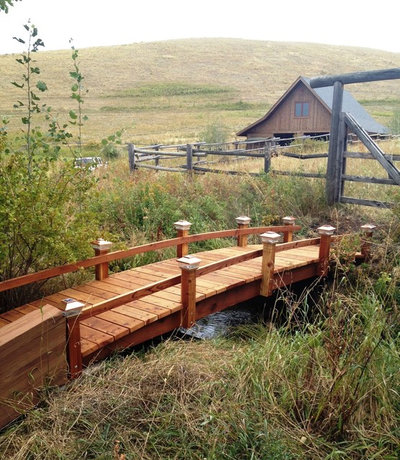
Redwood Garden Bridges
“One’s sense of one’s self as the center of one’s life, all life, dominates and we forget that, despite the striving, anguish, limitless sensations and desires, we will become the earth itself. A life feels so large and sprawly, so magnetic — it attracts people and objects to it — and when all is said and done, despite the flares of helplessness or angst, it feels sufficiently controlled: it is impossible to imagine ourselves reduced, anonymous, disconnected.” — Diane Ackerman,
Cultivating DelightIf you garden, how can you possibly feel alone? How can you feel helpless? It’s impossible. As complex as our emotions are, the garden reminds us that we are soil and light, that we are all connected — and in that is great joy and comfort. We even share many of the same genes as plants.
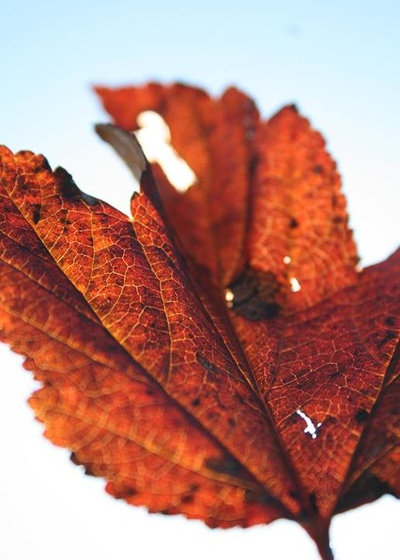
Benjamin Vogt / Monarch Gardens
“The earth and our own bodies, by casting shadows, seem to be the opposite of light. But if you have gazed up through the leaves of a tree at the sky, if you have watched the jeweled crests of waves, or held a shimmering fish in your hand, or lifted you palm against the sun and seen ruby light blazing through the flesh of your squeezed fingers, you know that matter is filled with fire. Matter IS fire, in slow motion … The resistant stuff we touch and walk on and eat, the resistant stuff we are, blood and bone, is not the opposite of light but light’s incarnation.” — Scott Russell Sanders,
Staying Put: Making a Home in a Restless WorldI was reading the other day how all matter in a universe is created when a star goes supernova, so in essence we are all stardust. In addition, our sun casts down light energy that makes plants grow, plants that nourish us in physical and psychological ways. Why would you not have a garden?
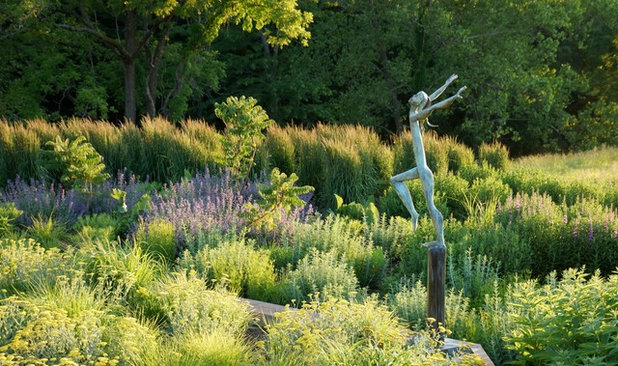
Adam Woodruff + Associates, Garden Artisans
“The essential thing is not so much that children should grow up (although they must), as that grown-ups should not lose altogether the innocent sensual pleasures that we knew at our beginning. We should be able to find our way back to the bright discovery days of the world as it was perceived and known in childhood, when every day brought new things to experience and learn … There is nothing like a garden to stimulate and satisfy each and all of our senses.” — Allen Lacy,
The Inviting GardenThe answer to every question in life is surely in the garden. Every consolation, every encouragement, every dream is right out there — if only we would let go of our desire for the answers. Right?
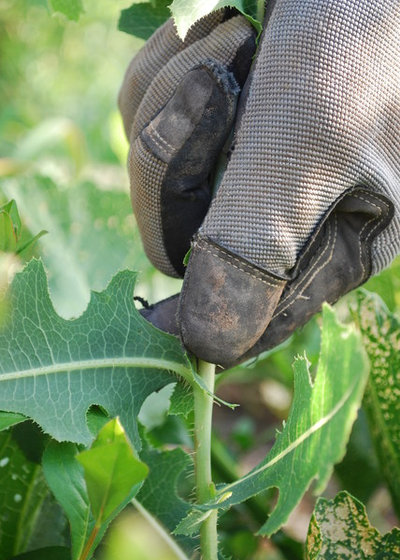
Jocelyn H. Chilvers
“To tip a weed from the earth is satisfying. There is a pale, crackling sound heard in the head and felt in the hand as the tenderest root fibers break from their holdfasts; then a bright, cheery crunch as the clump itself gives way. I like the weightiness of the clump; I like the way the weight lightens as the soil, shaken out, beaten out, spatters its sustenance back to the ground. There is a fine sensation of murder.” — Sara Stein,
My Weeds: A Gardener’s BotanyI just get this snippet from Sara Stein. I mean, isn’t she so right on the money here? The feel of weed pulling is as satisfying as scratching a hard-to-reach itch. Finally, I’ll let you have the last quotation all to yourself, because it could not be any more true.
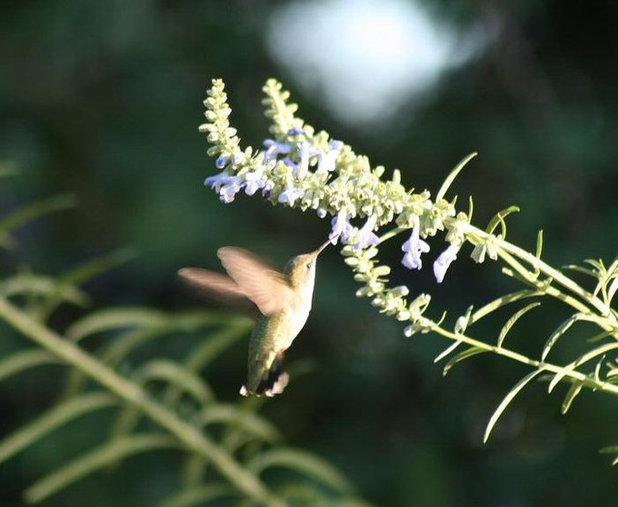
Benjamin Vogt / Monarch Gardens
“Compared to gardeners, I think it is generally agreed that others understand very little about anything of consequence.” — Henry Mitchell,
The Essential Earthman





